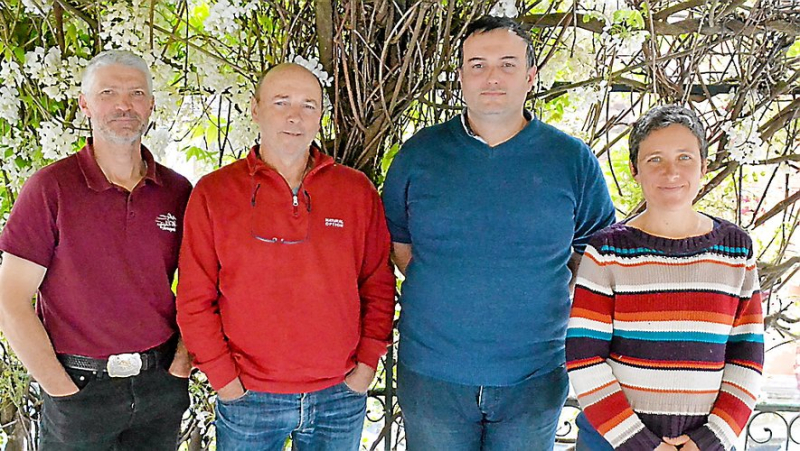“It’s a vital link in the chain”: a new collective supporting the South Aveyron slaughterhouse

Xavier Bro, Jacques Alvernhe, Bastien Brisson et Pauline André, membres du collectif Ulasa JMC
Il regroupe une dizaine d’éleveurs pénalisés par la fermeture de l’outil en mars dernier.
Since March 14, the slaughterhouse has ceased its activity following the withdrawal of its health approval by the prefect. Faced with this situation, a collective has just been created called Local Users of the South Aveyron Slaughterhouse (Ulasa). It brings together around ten breeders.
"We want it to be dynamic to try to imagine alternatives to being subject to regular closures of the slaughterhouse, declares Pauline André who raises lambs under the mother in Saint-Izaire. Among the users, there are breeders who do direct sales and cutting workshops. They are strongly impacted by the closure of the slaughterhouse. I stand in solidarity with them. It is important that this tool continues. It is a vital link in the chain in our agricultural area which is geared towards livestock farming. It is estimated that local users represent 1/5th of the slaughterhouse volume."
For Jacques Alvernhe, consultant in alternative slaughtering methods and technical advisor to the Ulasa collective, "some do not use the slaughterhouse because they do not support the practices ritual slaughter of the slaughterhouse." For ten years, the successive closures of this tool have put local breeders in difficulty.
Bastien Brisson, breeder of 250 goats on Lévézou, has fifty kids slaughtered per year. In solidarity with employees He invites small providers to join the collective: "This year, we had almost doubled demand and the closure pulls the rug out from under us. I had Camarès cut it. We lost customers."
Xavier Bro, from Saint-Izaire, slaughters one hundred and fifty to one hundred and eighty lambs per year: "bringing the lambs to Rodez also poses a question of profitability in terms of time and money." Bastien Brisson brings his goats to Pézenas, in Hérault: "I earned nothing and I gave satisfaction to my long-time customers. For me it's a passion job. so much food. When we know the price of cereals today, if we don't make money, we avoid losing any."
Among the fallback solutions, breeders will have them slaughtered in Antrenas in Lozère or in Puylaurens in Tarn. "By creating this collective we take stock of the situation and show the difficulties, underlines Bastien Brisson. It’s also so that people don’t feel alone."
For Jacques Alvernhe, the communities, who also happen to be owners of the slaughtering tools, need to ask questions. In whose hands and on what missions they entrust the exploitation of this tool within the framework of their local food policy." The collective declares itself in solidarity with the employees of the slaughterhouse.




